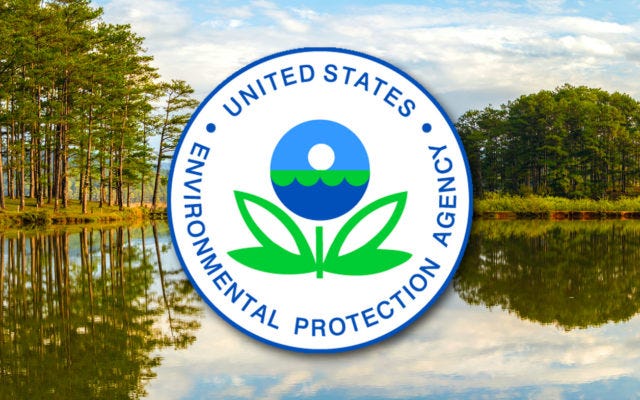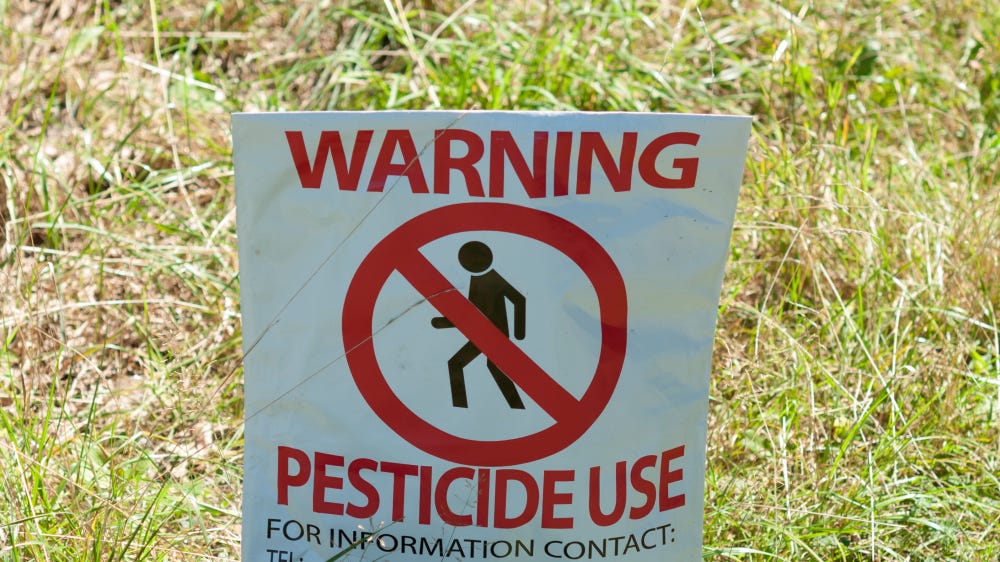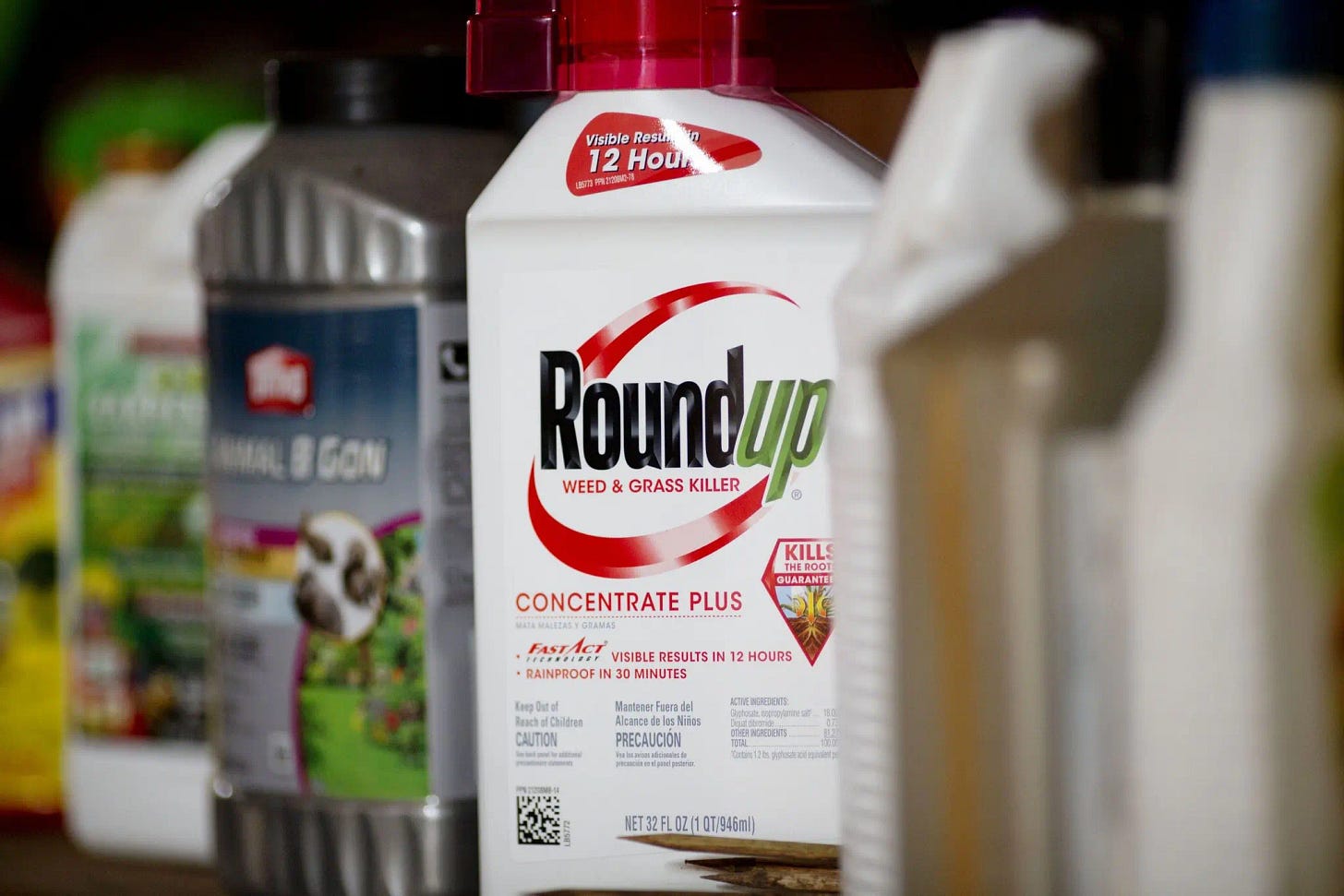By John Klar, Contributor, The MAHA Report
Later this month, the U.S. House of Representatives is expected to vote on a bill that could create total immunity from legal liability for pesticide producers whose products cause cancers and other illnesses.
Even if such companies have clear scientific evidence that a product actually sickens Americans, if the House bill passes they will be legally shielded, so long as their product labeling complies with EPA requirements.
Pesticide manufacturers claim the bill will not have that impact, but it can hardly be explained with any other rationale.
The bill, Section 453 of the Fiscal Year 2026 Interior, Environment, and Related Agencies Appropriations Bill, was approved by the House Appropriations Committee by voice vote (shielding representatives from being held accountable). Labeled the “Cancer Gag Act” by opponents, Section 453 would indirectly shield pesticide manufacturers from product liability claims in state courts.
If enacted, the bill would dramatically alter the current regulatory structures of federal agencies to prevent labeling notification of potential health threats from thousands of pesticides, essentially gutting the crucial “misbranding” provisions of the Federal Insecticide, Fungicide, and Rodenticide Act [FIFRA]. In turn, plaintiffs suffering from terminal illnesses would be barred from proceeding in state courts even if they produced overwhelming scientific proof of causation by pesticide products that “failed to warn” of these risks.
FIFRA prescribes the regulatory process for evaluating and labeling all pesticides, and requires companies seeking registration to provide study data relating to potential product risks. Once the EPA has prescribed a label, companies are required to subsequently apply to update the applicable label if they become aware of new data or scientific studies that reveal additional risks to the public. If a company fails to update its product labeling to warn users about a change in required safety directions or warnings, the product is deemed “misbranded” and is illegal to sell.
Section 453 prohibits the EPA or other agencies from modifying an approved label even if a corporation subsequently becomes aware of additional health risks from the pesticide. This will prevent warning labels from being updated to reflect the latest science, creating public and environmental health risks. Moreover, many legal experts argue that the inability of corporations to update their labels under the misbranding requirements of FIFRA will provide them with a product liability shield against state lawsuits based on the federal preemption “impossibility” doctrine. Because they will be prevented by Section 453 from updating their labels, they will not be liable for “failure to warn” claims under state statutes because permitting those claims would conflict with federal law.
It would be up to courts to determine how Section 453 would be applied preemptively, but on its face, the bill would prevent regulators from updating labels to avoid misbranding. There is a heinous, stealthy effort to protect corporate profits at the expense of Americans’ health.
Idaho Republican Congressman Mike Simpson discussed this dubious rider, claiming it merely served to prevent a patchwork of labeling that varies by state. However, existing law already shields companies from state-varied labeling: an express preemption clause in FIFRA explains that a state “shall not impose or continue in effect any requirements for labeling or packaging in addition to or different from those required under this subchapter.”
The US Supreme Court held in Bates v. Dow Agrosciences LLC that "[a] requirement is a rule of law that must be obeyed; an event, such as a jury verdict, that merely motivates an optional decision is not a requirement" (Under FIFRA). This interpretation has allowed state juries to consider plaintiffs’ evidence in product liability cases without being preempted by FIFRA. Juries have repeatedly been persuaded that the Monsanto Company (which Bayer purchased in 2018) knew that its product, Roundup, likely caused non-Hodgkin lymphoma, and yet failed to warn consumers by properly labeling the risks.
Section 453 is designed to close that loophole and prevent any American from suing for personal injuries under state product liability statutes, not just for glyphosate (the active ingredient in Roundup), but for all pesticides, including atrazine and paraquat.
Bayer, the German pharmaceutical giant, has not concealed its efforts to bar plaintiffs from suing it for its products, and has launched a massive propaganda campaign claiming the removal of glyphosate from use would hurt US farmers and drive up grocery prices. Slogans such as "Control weeds, not farming" and “Stand with farmers, not trial lawyers” blare across billboards nationally. The real question, though, is whether Congress will stand for human health or stand with pesticide manufacturers.
Epidemiologic research shows that glyphosate-based herbicides increase the risk of non-Hodgkin lymphoma in people (Zhang 2019) and cause multiple types of cancer in rats (Panzacchi 2025).
Bayer has paid out more than $10 billion in settlements for Roundup claims so far, with 181,000 suits filed. Several juries have awarded whopping billion-dollar punitive damages against the company. Clearly, regular people sitting on juries in public service have concluded that Bayer’s glyphosate causes cancer and that the company is well aware of it.
Yet Bayer continues to claim glyphosate is safe, and dismisses these suits as specious. Jess Christiansen, head of crop science and sustainability communications for Bayer, outrageously asserted that “This is part of the litigation industry and the process that we have to make decisions around….”
Alarmingly, Section 453 does not stop with Bayer’s glyphosate. Its prohibition of federal enforcement of FIFRA will prevent tens of thousands of labels on chemical-laced products from being updated to correct misbranding. Syngenta, which sells the chemical paraquat under the brand name Gramoxone, has been sued by thousands of Americans who claim the weedkiller is responsible for their Parkinson’s disease. Records released in prior litigation allegedly prove Syngenta’s scientists “found that paraquat had the potential to damage the brain and nervous system,” but did not warn consumers. Atrazine, which was banned in Europe back in 2004 because of water contamination, remains widely used in the US, especially in corn crops, despite being a known endocrine disruptor.
If Section 453 is enacted, Americans and their children will be exposed to many more chemicals and shielded both from protective labeling requirements and legal accountability. Large majorities of Americans, on both sides of the aisle, oppose this disastrous threat to human health. A 2024 Iowa poll found that a whopping 87% of registered Republican voters opposed giving Bayer legal immunity, and 94% expressed concern that the EPA relies on industry-funded studies to assess chemical safety.
Granting immunity for harms caused by products that companies know or should know cause death, chronic illness, reproductive harms (including hormone disruption and infertility), cancers, or neurological disease is a gross dereliction by Congress to protect citizens. Congress should bolster instead of neutralize regulatory oversight of toxic chemicals. Monetary awards never fully compensate people for the loss of a child’s or other loved one’s health. What’s more, many of these harmful chemicals will remain in our soils, food, and bodies indefinitely. Contamination by toxic chemicals cannot be sequestered like carbon or cleaned up like an oil spill.
The EPA and other agencies must be compelled to improve regulatory oversight on behalf of Americans instead of serving as regulatory cover for unscrupulous chemical corporations. Arguments that food prices will be inflated ignore the externalized medical costs and lost economic activity of sickened victims – cheap food does not justify chronic illness, sexual dysfunction, and shortened life spans for generations to come. Farmers are subsidized to use these dangerous pesticides; they can also be incentivized to discontinue their use.
What’s to be done? Americans must contact their elected representatives in both the House and Senate to demand that Section 453 and any other effort to give pesticide manufacturers immunity be stricken from any bill. As Robert F. Kennedy Jr. has long proclaimed: powerful business interests have run the country’s regulators for far too long. For Americans to get healthy again, this must end immediately.











Well done. Lots of important information that most Americans did not know.
Thank you. I don't feel like the current MAHA report does nearly enough about harmful pesticide use. I realize that Rollins and Zeldin aren't as bold as Kennedy but he really needs to get through to them. We can't wait on this problem to fix itself.